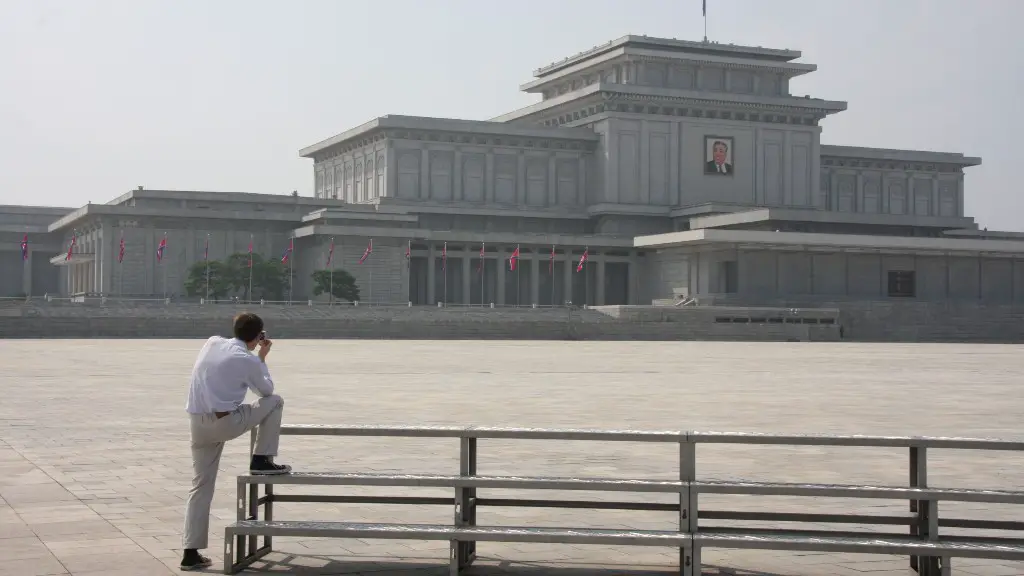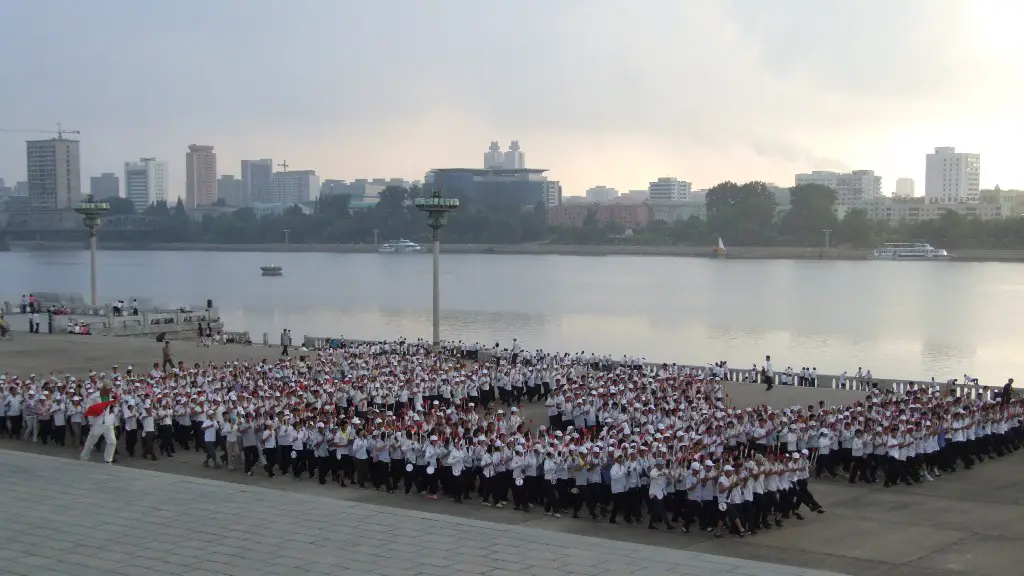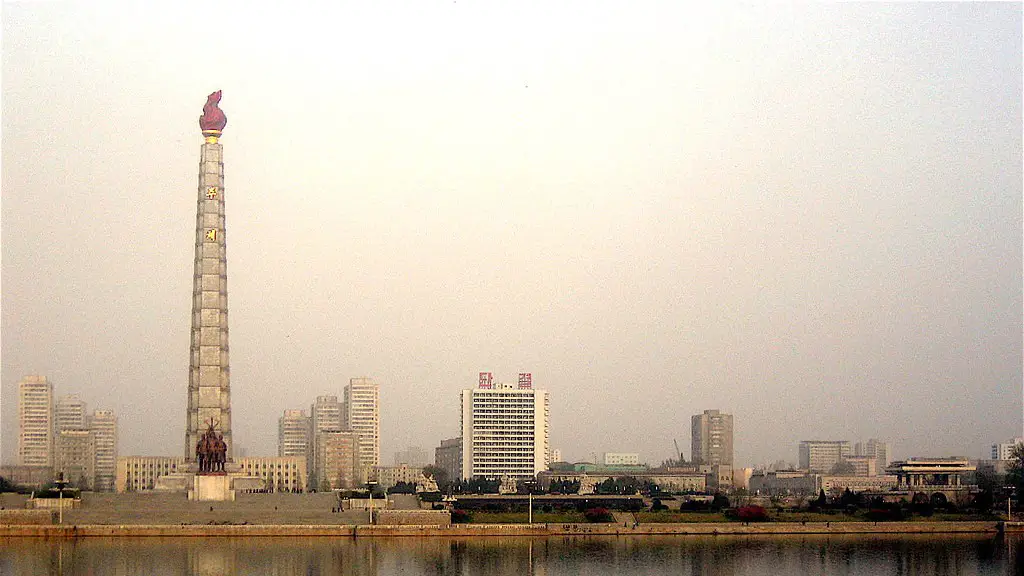North Korea is one of the most isolated countries in the world and one of the few remaining dictatorships. It’s also considered to be one of the most dangerous states, due to its nuclear program and its continued belligerence toward both its neighbor and the United States. For years, there has been debate over the best way to deal with North Korea and whether it’s possible to completely remove the country from the international scene. Could we wipe out North Korea?
The physical destruction of North Korea would come with a heavy cost in terms of human suffering and international condemnation, something which proponents of a “pre-emptive strike” strategy have raised to deflect potential criticism. It would also court disaster with North Korea’s neighbors and allies, particularly China, which has traditionally sought to protect the Kim regime. Even if such a drastic solution were conceivable, the likeliest result would be a long and bloody war which would destabilize the region, with devastating consequences for the Korean people and the rest of the world.
Experts agree that a preemptive strike is not a viable option. Instead, they suggest a multifaceted approach which combines diplomacy, economic measures, and sanctions to gradually weaken and pressure the North Korean regime. Sanctions targeting the military, the ruling elite, and economic sectors have been employed with varying levels of success in the past, including instances when North Korean officials have been found to be trading in illicit activities.
The Trump administration has adopted a hard-line stance with North Korea and engaged in a series of sanctions and diplomatic pressure. This has had some success in achieving a halting of nuclear activity, but there is still a long way to go in terms of reducing the country’s destabilizing influence. There is also a great deal of uncertainty as to whether North Korea will remain committed to its nuclear de-escalation pledges.
In addition, the focus on sanctions has taken energy away from the work of seeking a viable political solution. Diplomatic efforts to bring the two sides together have had little success, largely due to North Korea’s refusal to compromise on its nuclear ambitions. To make real progress, a measured approach to diplomatic talks will be needed that takes into account the interests of all parties, including those of the US, China, and the wider region.
There are also other obstacles to overcome in an attempt to resolve the North Korean issue, particularly the lack of trust between the two sides due to the history of broken promises and false promises by the North Korean regime. Additionally, the Kim regime has shown little willingness to allow meaningful access to international observers, human rights organisations and the media.
Overall, it appears unlikely that we could wipe out North Korea in the short term, even if the resources were to be made available. This means that a long-term strategy of gradual pressure and engagement is the most promising option, but this won’t be easy given the complexity of the situation and the current lack of trust between the two sides.
Economic Pressure On North Korea
One of the main strategies employed to push North Korea back from its nuclear activities has been economic pressure. This has involved the use of targeted sanctions, as well as trade embargoes and restrictions on international financial transfers. The effect of this type of pressure has been mixed, with some successes in reducing the flow of funds to the regime but also a number of unintended consequences. The most notable of these has been the suffering of the North Korean people, who have been further impoverished and subjected to increasing levels of repression.
The US and its allies have also sought to strengthen the international sanctions regime by persuading other countries, particularly China, to adopt tougher measures. This has had a limited success in preventing the regime from accessing alternative funding sources and Chinese trade has dropped substantially in recent years, as a result of pressure from the US.
Despite this, it is unlikely that economic pressure alone will achieve the desired results. North Korea has shown an impressive level of resilience in the face of economic hardship and remains determined to persist with its nuclear program.
Engagement With North Korea
While the focus has been on the use of sanctions, there have been some signs recently that the international community may be contemplating a shift in policy towards North Korea. Engagement is seen as the best way to achieve the eventual denuclearisation of the peninsula, although this will require North Korea to show a genuine willingness to make meaningful concessions.
The US has taken the lead in this process, with President Trump taking the unprecedented step of meeting with the North Korean leader, Kim Jong Un. The two held a summit in Singapore in 2018, which achieved an understanding between the two leaders that saw North Korea commit to denuclearise. Follow-up meetings and negotiations are ongoing, but progress has been slow and it remains to be seen if a lasting agreement can be reached.
Engagement has also been sought at a regional level, with China playing a central role in attempts to contain the growing tensions in the region. China has been critical in applying diplomatic pressure and has sought to increase its own clout in the region by taking a leading role in dealing with North Korea.
In addition, South Korea has sought to engage with North Korea, initially by swiftly re-establishing their economic ties and more recently by engaging in a process of dialogue and negotiators. This has included a series of meetings between the two Korean leaders, which has broken a longstanding stalemate and allowed tentative steps towards a lasting peace.
New Strategies to Handle North Korea
Given the current impasse, it is likely that new strategies will have to be implemented in order to ensure lasting peace and the eventual denuclearisation of the peninsula. There is increasing speculation that North Korea may be prepared to make some concessions, particularly on the issue of economic development, and it may take incentives, rather than coercion, to convince the Kim regime to make the necessary compromises.
For its part, the US is unlikely to budge on its “maximum pressure” policy and is likely to hold firm in its demand that North Korea meets its commitments in full before any economic sanctions are lifted. However, there is some speculation that the US may be willing to soften some of its demands in exchange for genuine progress on denuclearisation.
The use of technology could also exert new pressure on North Korea and bring the two sides closer to a resolution. This could involve the use of cyber-attacking techniques to interfere with North Korea’s nuclear capabilities and other military infrastructure, as well as using artificial intelligence and data analysis to uncover and monitor the likely location and movement of key figures in the regime.
The Impact of North Korea on the Global Community
The tension with North Korea is not simply restricted to the Korean peninsula, but has broader geopolitical implications. The proliferation of nuclear weapons and the possibility of a regional conflict has caused deep concern within the international community, particularly in the US and Japan, both of which could be in the direct firing line if such a conflict were to arise.
China, in particular, will be looking to protect its interests should the situation escalate, and it is likely that both the US and China will be carefully weighing up the consequences of their actions. North Korea has also become a flashpoint in the wider US-China rivalry, with both sides seeking to advance their influence in the region.
In addition, the North Korean crisis has had a damaging impact on the economy and environment of the region, as well as damaging global efforts to limit the spread of nuclear weapons. Millions of people have suffered as a result of the sanctions and restrictions imposed on North Korea, with the damage getting worse each year.
Conclusion
It is clear that the situation in North Korea is complex, volatile, and highly dangerous. A peaceful resolution will require a cooperative effort, but there is currently a lack of trust and confidence between the two sides. Even if a political solution can be reached, the economic and humanitarian damage inflicted by the regime will take much longer to repair.
It is therefore unlikely that we could wipe out North Korea in the short term, as any attempt to do so would be disastrous. Rather, a measured approach of diplomacy, economic sanctions and dialogue is the most promising option, but this will require a concerted effort from both the North Korean regime and the international community.




